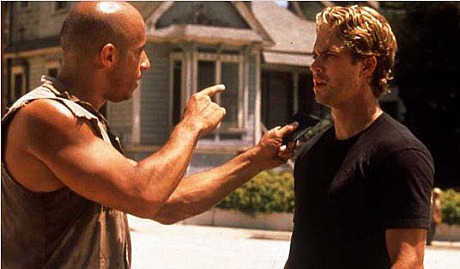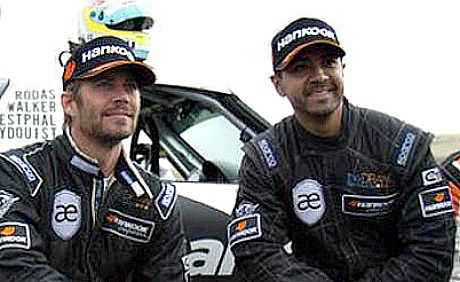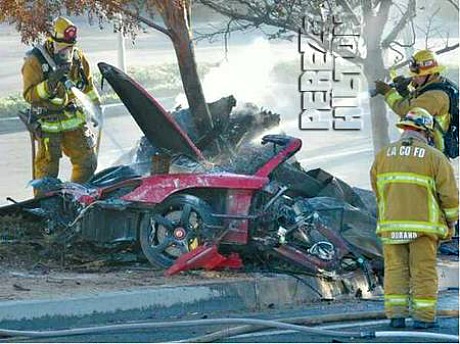France Ha‘s Greta Gerwig (what’s with the brown hair?), Afternoon Delight‘s Kathryn Hahn and Drinking Buddies‘ Olivia Wilde are the most intriguing conversationalists in this, The Hollywood Reporter‘s first-ever Breakthrough Performers Panel. The others include Barkhad Abdi (Captain Phillips), Adele Exarchopoulos (Blue Is the Warmest Color) and David Oyelowo (Lee Daniels’ The Butler). THR‘s Scott Feinberg moderated.
Daily
Younger Than That Now
I don’t fret or rant or point fingers when a relationship ends. I just say, “Okay, that happened and it was wonderful while it lasted.” Because I’ve been ready for the demise all along. We all know how to read the tea leaves after two or three weeks. The default assumption is that most relationships won’t last more than a few weeks or months. We tell ourselves the latest hook-up might be an X-factor thing that will somehow defy the odds, but we know deep down that probably won’t happen. And that’s cool. Unlike some women I don’t feel a need to rewrite and revise the history of the relationship. Some women definitely do this. All is bliss and serenity when a relationship begins, but when it winds down they have to go into their angry revisionist mode and say “oh, my God, what was I thinking?…I must have been out of my mind to fall for this guy!” and so on. Everything that was good and alpha-smooth has to be re-written as a moment of weakness or blindness or self-delusion. I always turn that around and ask, “So you were dumb or desperate or foolish enough to fall in love six months ago, but you’re a different person now?”
Weekend
My first reaction to this video was, of course, “Oh, God…look at that.” It happened in the vicinity of 28300 Rye Canyon Loop, Santa Clarita, or more precisely on Hercules Street. The guy shooting the video wants to see the horror (a common instinct) but he doesn’t want to be in the vicinity if the car explodes. Shards from the Porsche Carrera are all over the place. “Whoa, whoa…not too close, bro!….it might explode!…doooood!” Right away the voice tells you this is an under-educated young guy who probably has some lowly job. The bright blue color of their somewhat inexpensive-looking car…forget it, not important.
No Biggie, Go With God
In a 12.1 N.Y. Times piece Maria Bello has announced that (a) she’s more or less bisexual these days, but that (b) currently she’s in a same-sex relationship with a woman she deeply cares for. Terrific. I can’t imagine anyone not saying or thinking the same thing. I can’t imagine any director or casting director for any film or TV-cable show letting this influence whether or not to cast Bello in any kind of role. Nobody cares. It’s all cool like Jodie Foster (or an approximation thereof). But I think that Bello skirts the definition of “partner” in her article.
My understanding (and please be civil if you don’t agree) is that “partner” is basically a gay term for a live-in lover and trusted lifemate — a person with whom you have merged (or are in the process of merging with) in all the usual profound ways but generally outside the legal sanction of marriage. Emotionally, domestically, family-wise, financially, strategically, etc. The real thing. (Married gay guys tend to use “husband” instead of “partner,” right? I don’t know about married lesbians.) Straight domestic home-sharers can use the term also, but they tend to prefer “boyfriend whom I’m now living with” or “girlfriend whom I’m now living with.” The term “partner” might be used by heteros, yes, but this hasn’t appeared on my radar screen too much. Whatever your orientation a pair can be partnered without being sexual (passion wanes, people slow down, the old D.H. Lawrentian current dries up) but “partner” does tend to mean sharing a bed, no?
Don’t Expect Too Much
Joe Leydon has written again about his admiration for the late Paul Walker‘s performance in Eric Heisserer‘s Hours (Pantelion, 12.13), a baby-survival drama which Leydon reviewed for Variety at South by Southwest last March. But the trailer strongly suggests that Hours has issues. The biggest “tell” is when the hospital waiting-room window shatters and everyone reacts except Walker, who doesn’t even look up. Hollywood bunk. On top of which Hollywood Reporter critic John DeFore found Hours unconvincing.
Fair Warning
If Quentin Tarantino is calling Big Bad Wolves the best film of the year, I’m automatically suspicious if not dreading the experience. I know I’m going to partly hate it, at the very least. Tarantino’s taste in movies can be ludicrous. The man lives for B-level cheese, for crap-dump exploitation, for the lurid and the squalid. How else can I put it? How about a simple “he occasionally flips out for movies that an emotionally balanced film buff would never consider renting”? Have you ever seen the original The Inglorious Bastards?
”Scorsese’s Satyricon”
To hear it from Deadline‘s Pete Hammond and In Contention‘s Kris Tapley, Martin Scorsese‘s The Wolf of Wall Street (which was screened three times yesterday at 10 am, 12:30 pm and 6:30 pm) is a double-definite Best Picture contender — uncorked, operatic, bacchanalian, Goodfellas-like, flagrantly and very accurately un-p.c. in its depiction of how financial finagler Jordan Belfort (Leonardo DiCaprio) and his homies enjoyed women, and basically an adrenalized bitch of a toboggan ride. It’s qualudian madness, giddy euphoria, high-wire unicycle daredevilry…and then the Feds and the fall. Is it really a “comedy”? Yes, apparently — the diseased, dark and unzipped-pants kind. But at the same time no more of a comedy than Goodfellas was so you tell me.

It would seem, also, that DiCaprio and Jonah Hill are cast-iron locks for Best Actor and Best Supporting Actor noms, respectively. Which means that one of the five current Best Actor favorites is going to get bumped. Two or three weeks ago I would have said the bumpee would be Nebraska‘s Bruce Dern but his campaign has been too brilliant (“Vote for where I am now as a 77 year-old actor experiencing a major resurgence first, and…uhhm, vote for my performance also”) to deny. So my spitball presumption is that the Best Actor bumpee will be Captain Phillips‘ Tom Hanks. The Phillips acclaim will now transfer down to his already likely shot of a Best Supporting Actor nom for his Walt Disney performance in Saving Mr. Banks.
Walker Eulogy: Wayne Kramer
Director Wayne Kramer also replied in the early morning to my message about Paul Walker‘s sad passing. He referred me to his Facebook tribute:
“It’s truly been a devastating day for Paul Walker’s family, his friends and his fans all over the world. I still haven’t begun to process it. It doesn’t seem real.
“I had the great privilege to work with Paul twice, most recently last year on a little seen film called Pawn Shop Chronicles (which came and went) and in 2004 on a film I hold closest to my heart, Running Scared (’06). A filmmaker could not ask for a better or more supportive collaborator than Paul. So many people who knew him will talk about what a great human being he was, and they would be right — everybody who met him instantly loved him — but I want to talk about what a great actor he was.

Walker Eulogy: Rob Cohen
Last night I asked director Rob Cohen (’01’s The Fast and The Furious) if he felt like sharing about the death of Paul Walker, who had co-starred in TFatF as well as Cohen’s The Skulls (’00). His reply was there when I awoke this morning:
“I’m still in shock and hurting. Paul was a beautiful man inside and out. We were both in Maui for Y2K and ran into each other. We had done The Skulls together and formed a deep connection. He used to call me his ‘Movie Dad.’ He introduced me to surfing for which I’ll always be grateful. The ocean was the core of him, and his beauty and harmony came from that connection.

Vin Disel, Paul Walker in Rob Cohen’s The Fast and the Furious (’01).
Sad Dead End
In the wake of tonight’s announcement that Fast and the Furious costar Paul Walker was killed this afternoon in a car crash in Valencia, I tried to get in touch with Wayne Kramer and Rob Cohen, two directors I know slightly who directed Walker in the two critically respectable films he made over his nearly 30-year career as an actor. But the email addresses and phone numbers I have for both are out of date. It’s been a few years since I’ve spoken to them. Sympathy and condolences, gentlemen, if you’re reading this. Obviously a terrible thing to handle.

(l.) The late Paul Walker; (r.) the late Roger Rodas.
Kramer directed, wrote and produced Running Scared (’06), which Walker was the sole star of and which was probably his best-ever film. Cohen directed the original The Fast and the Furious (’01), which seemed to “recapture that old Sam Arkoff-ian, American International Pictures B-movie vibe,” I wrote in my Reel.com column.
Tapley Sees Wolf, Pisses Off Twitter Followers
Some friend of Hitfix‘s Kris Tapley got him into a SAG screening (presumably today) of Martin Scorsese‘s The Wolf of Wall Street, and he doesn’t even hint about whether he was dumbstruck, delighted, pleased, mezzo-mezzo’ed or underwhelmed? Not even a whiff of a hint at what his scholastic or numerical grade might be? C’mon, Kris…give that shit up. All he’s saying is “big pop for Jonah Hill“…duhh, kinda knew that! And “standing O for Leonardo DiCaprio (naturally).” I’m very disappointed. If I’d been the lucky one I would have divulged more than this, you bet.
Class Distinctions
During a 1995 CSPAN2 interview for his book, Oswald’s Tale, the late Norman Mailer said the following about the culture of Minsk, the Russian city where Lee Harvey Oswald lived for a couple of years: “If you were an intellectual, doctor, professor, manicurist…everyone lives in the same level [in Minsk]. I lived in a relatively ordinary apartment house. The difference in Minsk, is that if you were an intellectual or a doctor or scientist, you lived no better than a worker and perhaps in some cases not quite as well as a worker, but what you did have, you had your superiority. You had your essential class superiority, which is that you were cultured and they were not. You had this incredible snobbery, this incredible class system. People had to find a vein of social superiority, no matter how.”

